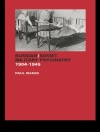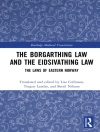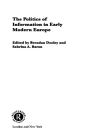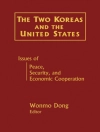The fall of the Berlin Wall, and the chain of events leading up to it, arguably constitute one of the most thoroughly documented episodes in recent history. Nonetheless, most accounts have focused predominantly on high-level politics and diplomacy along with the most dramatic and photogenic public displays. End Game, a rich, sweeping account of the autumn of 1989 as it was experienced “on the ground” in the German Democratic Republic, powerfully depicting the desolation and dysfunction that shaped everyday life for so many East Germans in the face of economic disruption and political impotence. Citizens’ frustration mounted until it bubbled over in the form of massive demonstrations and other forms of protest. Following the story up to the first free elections in March 1990, the volume combines abundant detail with sharp analysis and helps us to see this familiar historical moment through new eyes.
Tabla de materias
List of Abbreviations
Acknowledgments
Preface to the 2015 edition
Introduction
Part 1: Images of a Social Crisis
Prologue
Chapter 1. General Conditions
Chapter 2. The GDR in Its International Context
Chapter 3. Symptoms of Crisis
Chapter 4. Nuances: Regional Variations and Subcultures
Chapter 5. Countermovements: The Pull of the West and the Churches
Chapter 6. Opposition in the SED State
Chapter 7. Germination Time: The Ossietzky Affair
Part 2: From the Social Crisis to a Crisis of the Dictatorship
Chapter 8. The Social Crisis Deepens
Chapter 9. Regime Collapse and Historic Days
Part 3: The Fall of a Dictatorship
Chapter 10. From Demonstrations to the Fall of the Wall
Chapter 11. The Fallout
Chapter 12. Forging a New Path: Elections and Reunification
Conclusion: The Revolution. Or: Otto Schily as a Symbol
Afterword for the 2021 edition: From the Revolution in the GDR in 1989 to Eastern Germany in the Twenty-first Century
Select Bibliography
Index
Sobre el autor
Ilko-Sascha Kowalczuk is a historian in the research department of the Stasi Records Authority, where he has been on leave since 2018. Currently, he is a researcher at the Hamburg Foundation for the Promotion of Science and Culture to write a biography on Walter Ulbricht. He is the author of many books, including Die Übernahme. Wie Ostdeutschland Teil der Bundesrepublik wurde (2019), ‘Fasse Dich kurz!” Der grenzüberschreitende Telefonverkehr der Opposition in den 1980er Jahren und das Ministerium für Staatssicherheit (2014), and 17. Juni 1953 (2013), Stasi konkret. Überwachung und Repression in der DDR (2013),












